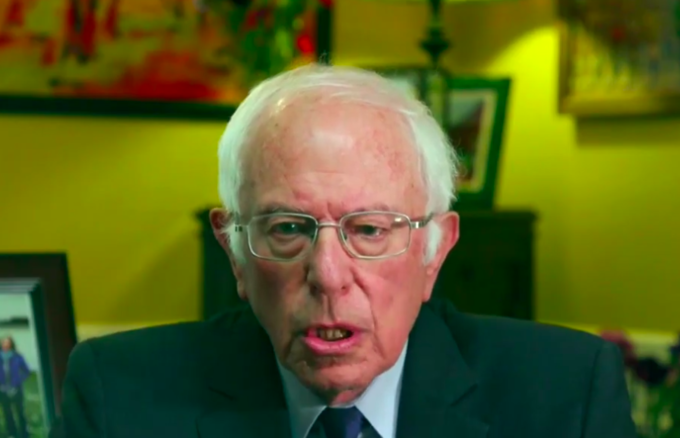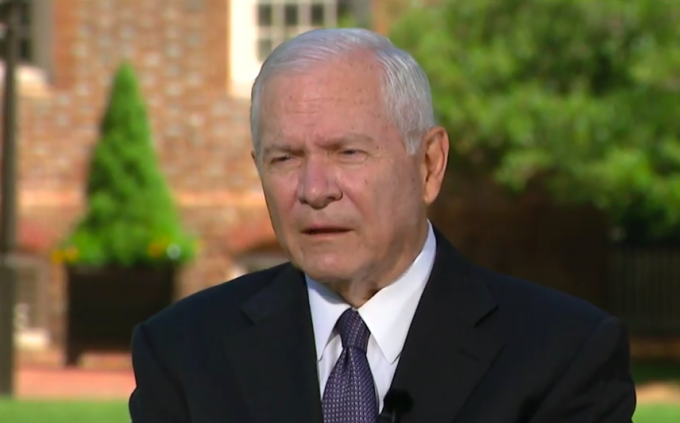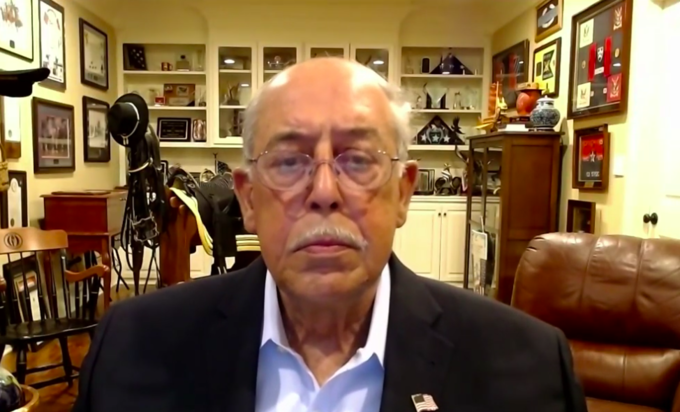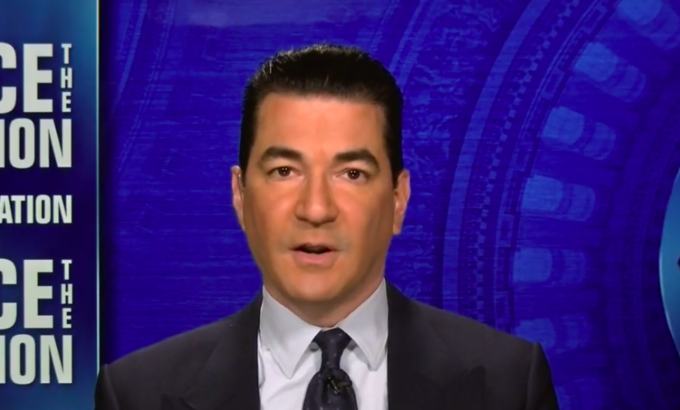| "We have got to combat anti-Semitism. We have to combat the increase in hate crimes in this country, against Asians, against African-Americans, against Latinos." - Senator Bernie Sanders (I-VT) on the rise of hate crimes
Welcome to the "Face the Nation" Five at Five newsletter. Scroll down for your five takeaways from today's broadcast of "Face the Nation" with Margaret Brennan on CBS. Did someone forward you this? Sign-up at cbsnews.com/email. 1. Sanders urges "even-handed" U.S. approach to Israel and Palestinians 
Senator Bernie Sanders on Sunday called for the United States to take an "even-handed" approach to the conflict between Israel and the Palestinians as a cease-fire between the Israelis and the militant group Hamas brought a halt to violence in Gaza.
What Sanders said: "I think the United States has got to develop an even-handed approach to the Israeli-Palestinian conflict. We have to be pro-Israel, but we have to be pro-Palestinian. And I hope and believe the president understands that." Why it matters: Brokered by Egypt and announced late Thursday, the cease-fire between Israel and Hamas brought a halt to 11 days of violence that left more than 200 Palestinians and 12 Israelis dead. The cease-fire, while fragile, appears to be holding, and humanitarian aid began flowing into Gaza on Saturday. 2. Gates sees "very little prospect" of peace between Israel and Palestinians 
Former Defense Secretary Robert Gates believes there is "very little prospect" of peace between the Israelis and Palestinians, as a cease-fire between Israel and the Palestinian militant group Hamas continued to hold after 11 days of violence in Gaza.
What Gates said: "I think there's very little prospect of a peace between them at this point. I don't think there has been in quite a long time. And I think, in fact, one of the things that produced the breakthrough with the Abraham Accords between the Israelis and the Gulf states and others has been sort of essentially setting aside the Palestinian issue and and moving on to a region that has changed in some pretty dramatic ways, which basically leaves the Palestinians out in the cold." Why it matters: The Israeli government and Hamas reached a cease-fire, brokered by Egypt, late Thursday, bringing a halt to more than a week of violence that left more than 200 Palestinians and 12 Israelis dead. Following the announcement of the cease-fire, President Biden said his administration will "continue its quiet and relentless diplomacy" and believes "we have a genuine opportunity to make progress, and I am committed to working toward it." 3. Honoré, who led Capitol security review, urges Senate to approve funding bill 
Retired Lieutenant General Russel Honoré, who conducted a security review in the wake of the January 6 assault on the U.S. Capitol, pushed lawmakers to approve a bill that would provide an additional $1.9 billion to harden the Capitol complex and warned that the longer they wait, the more vulnerable the building is.
What Honore said: "This is serious business. It's about their security. And right now we have the security to secure the Capitol. But that does not include the mission to have it open to the public, which all of them, both sides, houses, both parties want to have the Capitol be open to the public. And this funding is needed. So if they don't fund it, they don't have it." Why it matters: The House last week narrowly passed legislation providing $1.9 billion to improve security at the Capitol and incorporating recommendations from Honoré's review. In addition to providing funding for fencing and making improvements to secure windows and doors, the measure also creates a new quick reaction force of the D.C. National Guard to respond to threats to the Capitol. 4. Gottlieb says Americans should rely on "individual assessments" of COVID risk 
Dr. Scott Gottlieb, the former head of the Food and Drug Administration, said Americans should rely on "individual assessments" of their risk from COVID-19 when making decisions about when to wear a mask or gather in certain settings, citing the "rapidly declining overall vulnerability" to the virus. What Gottlieb said: "I think it's an environment right now where we're not going to rely necessarily on public health ordinances and mandates from governors and mayors to protect us, but we're going to have to protect ourselves based on our own assessment of our risk and our own comfort." Why it matters: Since January, the seven-day average of new cases nationwide is down 90%, and COVID-19 related hospitalizations are down almost 80%. There are now roughly 500 COVID-19-related deaths per day, a decrease of about 85%. Nearly 39% of the total U.S. population has been fully vaccinated, according to the Centers for Disease Control and Prevention. The health agency issued new guidelines earlier this month for the use of masks by those who have been fully vaccinated, saying they are not needed in most indoor and outdoor settings. 5. Colleges resume in-person graduation ceremonies as COVID-19 restrictions lift 
It's commencement season and this year some schools are not only celebrating the class of 2021, but also the class of 2020 -- many of whom missed out on the pageantry because of the COVID-19 pandemic.
Watch CBS News senior national correspondent Mark Strassmann report on how a downward trend in COVID-19 cases is giving confidence for a post-COVID America.
| 
No comments:
Post a Comment